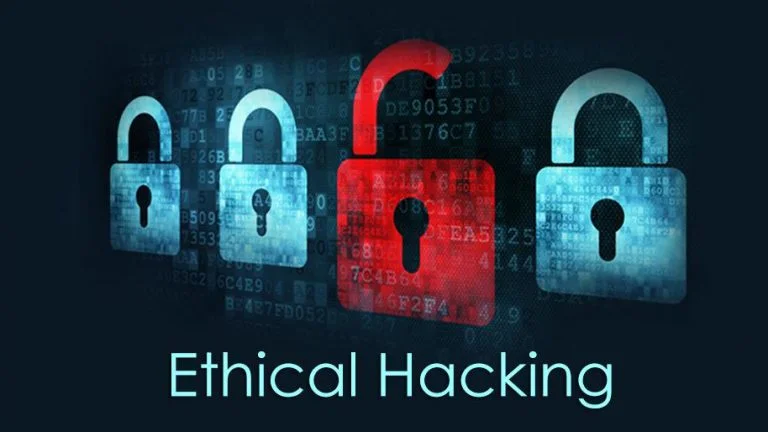Ethical Hacking
Learn the art of ethical hacking and defend against modern cyber threats.
Ethical hacking is a crucial skill in today’s cybersecurity landscape. This course will guide you through penetration testing, vulnerability assessments, and other techniques used by ethical hackers to identify and mitigate security risks. Whether you’re new to the field or seeking to sharpen your skills, this course offers hands-on knowledge and real-world applications.
What is Ethical Hacking ?
Ethical hacking refers to the practice of intentionally probing and testing systems, networks, and applications for vulnerabilities to identify and fix potential security weaknesses. Unlike malicious hackers, ethical hackers—often called white-hat hackers—operate with permission from the organization they are testing, with the goal of improving security and preventing cyberattacks.
Ethical hackers use the same tools and techniques as cybercriminals but with the intent to enhance security. Their tasks include penetration testing, vulnerability assessments, and security audits to simulate cyberattacks and identify exploitable weaknesses before malicious hackers can exploit them.
Key practices include testing for common vulnerabilities, finding weak passwords, ensuring proper encryption, and checking for misconfigurations. Ethical hackers report their findings to the organization, offering suggestions for improving defenses and mitigating risks.
By identifying vulnerabilities early, ethical hacking helps organizations strengthen their cybersecurity, safeguard sensitive data, and reduce the chances of security breaches.
What the Course Offers ?
Introduction to Ethical Hacking
“Gain a solid understanding of ethical hacking concepts, the importance of cybersecurity, and the role ethical hackers play in securing digital assets.”Penetration Testing
“Learn the fundamentals of penetration testing (pen testing) to evaluate system vulnerabilities and test defenses against potential attacks.”Tools and Techniques
“Explore popular hacking tools (like Metasploit, Wireshark, Burp Suite) and how to use them in real-world testing scenarios.”Vulnerability Assessment
“Learn how to assess and identify system vulnerabilities, including how to use scanning tools and methodologies to detect security flaws.”Legal and Ethical Considerations
“Understand the ethical guidelines and legal constraints that govern ethical hacking and penetration testing to ensure you’re always operating within the law.”Report Writing and Documentation
“Learn how to write clear, concise reports to document vulnerabilities and explain remediation strategies effectively.”Advanced Hacking Techniques
“Explore advanced ethical hacking techniques, including social engineering attacks, web application security testing, and network exploitation.”

Our Approach
Core Concepts and Tools
- What You’ll Learn:
“Start with the fundamentals of ethical hacking, the hacking process, and security protocols. Understand the tools used by ethical hackers, such as Kali Linux and Metasploit, to perform penetration tests and vulnerability assessments.” - Why It’s Important:
“A strong foundation in ethical hacking principles and tools is essential for performing effective security audits and tests.”
Hands-on Penetration Testing
- What You’ll Learn:
“Move from theory to practice by running penetration tests on simulated environments, discovering vulnerabilities, and exploiting them to test system defenses.” - Why It’s Important:
“Practical experience with penetration testing helps you understand attack vectors and the response measures needed to secure systems.”
Advanced Hacking Techniques and Reporting
- What You’ll Learn:
“Learn advanced ethical hacking techniques such as buffer overflow attacks, SQL injection, and cryptography vulnerabilities. You’ll also master the art of documenting and reporting findings, creating professional reports for clients or management.” - Why It’s Important:
“These skills prepare you for real-world penetration testing projects and give you the ability to communicate security risks clearly to stakeholders.”
Benefits of This Course
Hands-on Experience
Work on practical projects that replicate real-world hacking scenarios to sharpen your skills.`
Comprehensive Skill Set
Acquire skills that are highly sought after in cybersecurity, including penetration testing, risk assessment, and secure system design.
Build a Cybersecurity Career
Enhance your career prospects in the rapidly growing cybersecurity industry, opening doors to high-demand roles like penetration tester, security analyst, and more.`
Industry-Relevant Tools
Get hands-on with industry-standard tools and techniques used by professional ethical hackers and cybersecurity experts.
Ethical Hacking Mindset
Develop the mindset of a professional hacker who thinks like an attacker but acts responsibly to protect systems and data.
Legal and Ethical Insights
Learn the rules of ethical hacking, ensuring you stay compliant with laws and avoid malicious hacking activities.
Security Awareness
Gain the ability to identify vulnerabilities in systems, giving you the knowledge to prevent and defend against cyberattacks.
Conclusion
Ethical hacking is one of the most essential skills in modern cybersecurity. By mastering these techniques, you’ll be able to proactively identify vulnerabilities and protect systems from malicious hackers. This course provides the knowledge, skills, and real-world applications you need to succeed in ethical hacking and pursue a rewarding career in cybersecurity.